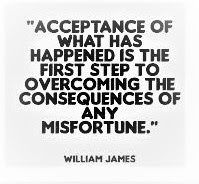Use these simple, actionable strategies to keep moving forward
by Christopher Ruvo
The coronavirus pandemic has ignited a public health crisis not seen in the United States in more than 100 years and triggered an economic freefall that has the country set for recession or worse. All that has made daily life exceedingly more difficult, including for professionals in the promotional products industry, which has been devastated by lost business, layoffs and temporary closures amid the COVID-19 fallout.
At such a time, it can be easy to feel overwhelmed and beaten. Still, now more than ever is a time to stir up resolve and dig into improving matters to the best of your ability. To do that, you need to stay motivated. Here are a few ideas how:
*Remind yourself that you’ve overcome troubles before: You’ve faced life’s storms. But if you’re reading this, you made it through them. Remind yourself of that. You’re tougher than you think. Your skin is thicker than you give yourself credit for. The simple fact of your continued existence in an increasingly complex and difficult-to-navigate world is proof of that. So, remember the rocky terrains – and how you succeeded in crossing them. Firm yourself in the belief that you can and will do it again.
*Call to mind past victories: Similarly, think of the times you set your mind to accomplish something and then achieved the goal. Recalling the successes, reliving their emotions even, can prove catalyzing, inspiring you to work hard toward your new objectives and solidifying a resolve that you can attain the goals you set.
*Count your blessings: Fear, anxiety and anger can’t exist at the same time that you’re feeling gratitude. So, when the world overwhelms and those feelings of breathlessness and worry storm in, counteract them by diverting your thoughts to things for which you are thankful. Make a mental account of such things, taking time to contemplate as many as needed until you calm down. It may help to write a list. As Counselor shared recently, practicing gratitude makes you feel better. When you feel better, you’re stronger and able to think clearer. That best prepares you to not just weather the adversity of your particular situation, but to develop smart strategies to actively navigate it.
*Affirm that something good will happen: As troubles mount, you can fall into the mindset that nothing good happens – or ever will happen. Aim to avoid that trap with positive mental framing. As you get going in the morning, repeatedly tell yourself that something good is going to happen for you that day until you truly internalize the sentiment. This creates a sense of expectation and even excitement that can help fuel you through the harder moments in the hours ahead. And, some would argue, the belief in something good occurring has the power to manifest it happening.
*Speak positively: This applies to internal dialogs with yourself, as well as conversations, email interactions, social media exchanges and the like you have with others. Speaking gloom and doom generates a cloud of negativity around you; that brings you and others down – saps energy. However, speaking positively over and again can help brighten the dark times. It lifts spirits. That better readies you to make what improvements you can to improve your situation.
*Let go: There are some things that are beyond your control. Tell them goodbye and move past them. When you do this, a weight lifts. When you feel less burdened, you’re more capable of doing what you should be doing, which is taking steps to control the things you can in pursuit of desirable outcomes.
*Fill your mind with uplifting content: Given the rapidly changing health and business complications tied to the coronavirus, it’s not possible – or responsible – to entirely tune out the world. Still, constantly pouring downbeat reports into your head isn’t wise, either. Get the crucial information you need to be an informed, responsible citizen and to help make smart business decisions. Then, bolster your perspective with uplifting messages. Maybe that involves reading a motivational or religious/spiritual book, or listening to an inspirational podcast. Perhaps it entails enjoying music, movies or visual art that pick you up. It could even be YouTubing highlights of those times your teams won championships. Whatever the good stuff is, populate your mind with it.
*Exercise: You don’t have to go at it like you’re training for an ultramarathon, but engaging in physical activity every day will get the endorphins firing, energize you and help evaporate the fog from your perspective.
*Celebrate accomplishments: No success is too small to celebrate. During bleak periods, it’s especially important to acknowledge and feel good about every win. Doing so is strengthening and motivating.
*Have an action plan: Amid uncertainty, a plan provides structure – a foundation from which you can build. That can prove reassuring. Plus, having a plan is inherently motivating – its existence compels you to put it into action. By plotting out a plan, you’ll also be forced to think things through, which can lead to unexpected revelations for potential solutions to current dilemmas. That can fire you up.


